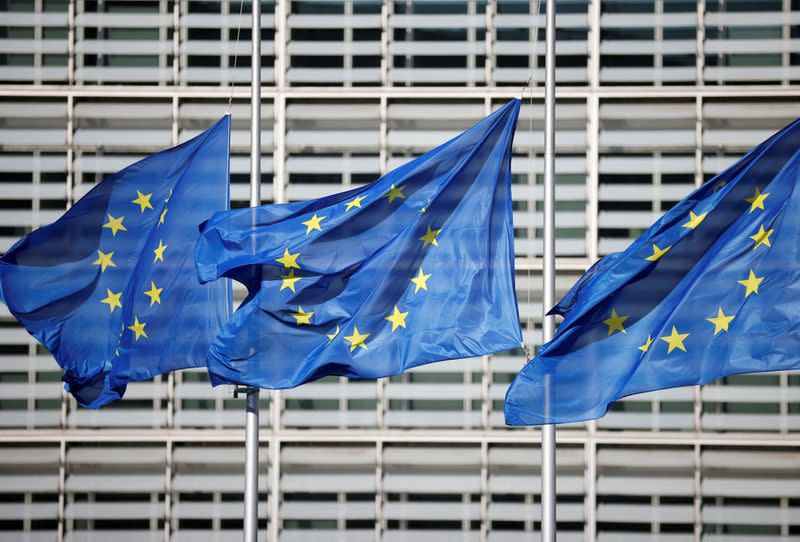EU-German deal to map path for e-fuel cars after 2035

By Kate Abnett
BRUSSELS (Reuters) - The European Commission has agreed to propose a legal route to exempt cars that run on e-fuels from the EU's 2035 phaseout of new combustion engine vehicles to resolve a row with Germany over Europe's main car climate policy.
Germany's transport ministry has for weeks blocked the European Union's plans to ban sales of new CO2-emitting cars in 2035, demanding an exemption for combustion engine cars that run on e-fuels.
A Commission document seen by Reuters on Monday showed how the EU plans to grant that exemption, under a deal struck by Berlin and Brussels late on Friday.
When EU countries approve the 2035 phaseout law, the Commission will create a new EU vehicle category for cars that can only run on carbon-neutral fuels.
The Commission will then present another regulation specifying how these cars can contribute to the 2035 target, the document said.
This will take the form of a delegated act - a type of law that is difficult for EU countries and lawmakers to reject. As an extra reassurance to Germany, the Commission said if this law were to be rejected, it would "follow another legislative path" to allow e-fuel car sales.
The deal paves the way for EU countries' ministers to finally approve the 2035 phaseout law for new combustion engine cars on Tuesday, allowing it to enter into force.
Italy, which wants cars that run on biofuels to also be exempted from the 2035 phaseout, on Monday tried unsuccessfully to delay the vote.
E-fuels are made using captured CO2 emissions and low-carbon hydrogen. Such fuels are not yet produced at scale, but are seen by some carmakers as a route to prolonging the use of combustion engines.
Germany's demand was supported by parts of the country's car industry.
The exemption was criticised by climate campaigners.
"E-fuels are an expensive and massively inefficient diversion from the transformation to electric facing Europe's carmakers," said Julia Poliscanova, a senior director at campaign group Transport & Environment.
Berlin's last minute opposition came even though EU countries and the European Parliament had agreed a deal on the combustion engine phaseout law last year. That upset some EU diplomats who say it could embolden governments to block other carefully negotiated deals on climate policies.
(This story has been refiled to fix typo in paragraph 1)
(Reporting by Kate Abnett; additional reporting by Alvise Armellini; editing by Jason Neely and Jane Merriman)

 Yahoo Finance
Yahoo Finance 